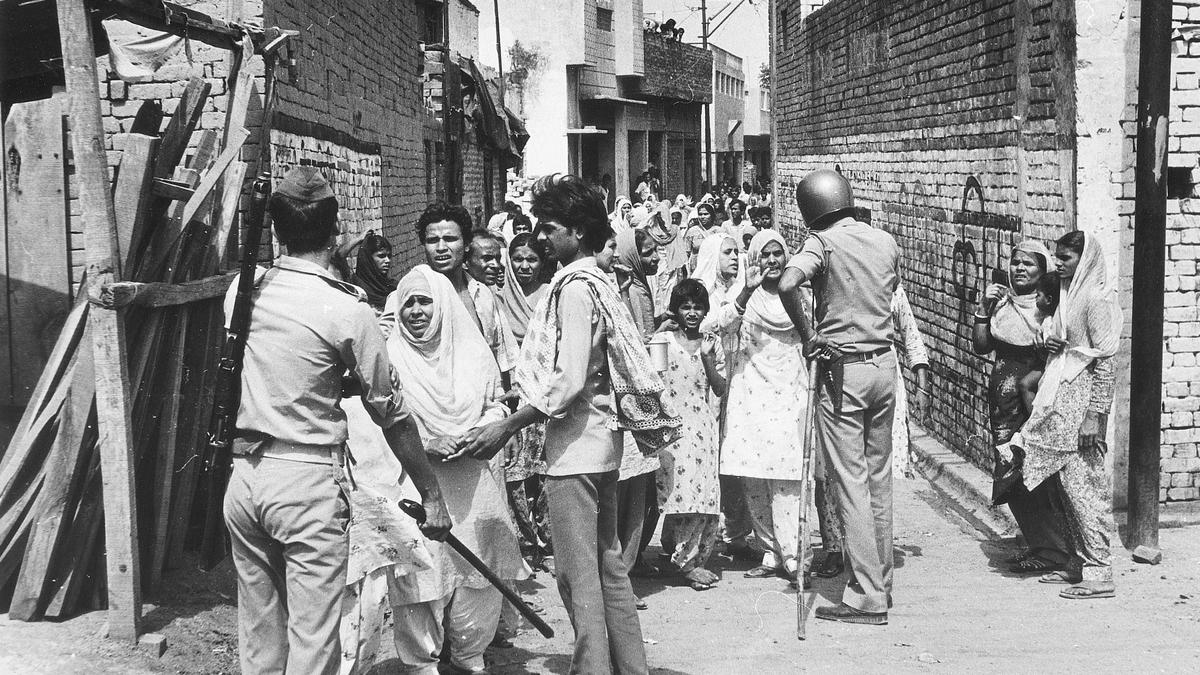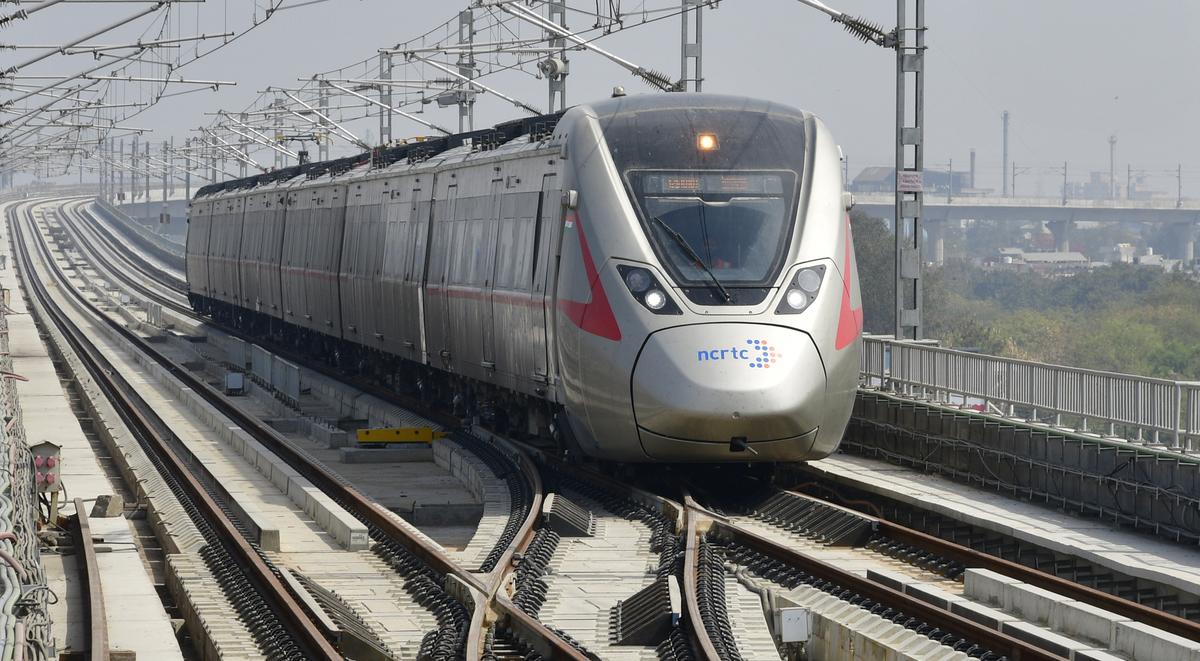- Courses
- GS Full Course 1 Year
- GS Full Course 2 Year
- GS Full Course 3 Year
- GS Full Course Till Selection
- Online Program
- GS Recorded Course
- NCERT (Recorded 500+ Hours)
- Polity Recorded Course
- Geography Recorded Course
- Economy Recorded Course
- AMAC Recorded Course
- Modern India, Post Independence & World History
- Environment Recoded Course
- Governance Recoded Course
- Science & Tech. Recoded Course
- International Relations and Internal Security Recorded Course
- Disaster Management Module Course
- Ethics Recoded Course
- Essay Recoded Course
- Current Affairs Recoded Course
- CSAT
- 5 LAYERED ARJUNA Mentorship
- Public Administration Optional
- ABOUT US
- OUR TOPPERS
- TEST SERIES
- FREE STUDY MATERIAL
- VIDEOS
- CONTACT US
Hashimpura Massacre Convicts Challenge Delhi Prison Rule on Furlough
Hashimpura Massacre Convicts Challenge Delhi Prison Rule on Furlough

- The convicts of the 1987 Hashimpura massacre have moved the Delhi High Court challenging a Delhi Prison Rule that vests the power to grant furlough with the court where their appeal is pending.
- On May 22, 1987, Provincial Armed Constabulary (PAC) personnel allegedly killed around 38 Muslim men in Hashimpura, Meerut (Uttar Pradesh) amid communal tensions.
- The convicts argue that furloughs, generally granted by the executive, should not be left to the appellate court handling their conviction appeal
Difference between Furlough, Parole, Bail
|
Aspect |
Furlough |
Parole |
Bail |
|
Definition |
Short-term, temporary release from prison granted to convicts as part of a reformative approach, without a specific emergency reason. |
Conditional release of a convict before completion of sentence, on the basis of good conduct and specific emergency needs. |
Temporary release of an accused person (not yet convicted), to ensure their presence during trial, granted by judicial authority. |
|
Nature of Sentence |
Sentence continues to run during furlough.
|
Sentence is suspended during parole.
|
No sentence involved — person is not yet convicted. The person remains free while facing trial. |
|
Purpose |
|
|
|
|
Granting Authority |
|
|
|
|
Eligibility |
|
|
|
|
Conditions |
|
|
|
|
Duration & Frequency |
|
|
|
|
Requirement of Reason |
No specific reason required.
|
|
|
|
Legal Nature |
|
|
|
|
Relevant Constitutional Provisions |
|
|
|
Delhi Prison Rules 2018 and the Legal Challenge
What Do the Rules Say?
- Chapter XIX of Delhi Prison Rules (2018) deals with parole and furlough.
- Note 2 of Rule 1224 states that if an appeal against conviction is pending before the High Court or the time for filing such an appeal has not expired, furlough will not be granted by the executive.
- The convict must seek appropriate directions from the appellate court.
What Is Being Challenged?
- The constitutional validity of Note 2 of Rule 1224 is under challenge before the Delhi High Court (HC).
- The petitioners argue that:
- The rule violates Articles 14 (Right to Equality) and 21 (Right to Life and Liberty).
- It contradicts the reformative approach of imprisonment by denying furlough despite good conduct.
- The jurisprudence of parole should also apply to furlough, as furlough does not involve suspension of sentence.
How Has the Delhi High Court Interpreted the Rule So Far?
- A Single Judge Bench of the Delhi HC ruled that the term "High Court" in the rule implies the appellate court, which includes both Delhi HC and the Supreme Court (SC).
- If a convict’s appeal is pending before the SC, only the Supreme Court can grant furlough.
- A Division Bench of Delhi HC is now examining whether:
- An application seeking furlough can be made before the High Court, even if the appeal is before the Supreme Court.
- The constitutional validity of the prison rule is justified.
Judicial Precedents on Suspension of Sentence
Landmark Case: K.M. Nanavati v. State of Maharashtra (1959):
- Kawas Manekshaw Nanavati, a naval officer, was convicted of murder in 1959.
- The then Governor suspended his sentence under Article 161, even before appeal was filed in the Supreme Court.
- In 1960, the Supreme Court ruled that Governor cannot suspend sentence once the matter is sub judice before SC, as it would interfere with the Court’s appellate powers.
- This precedent supports the idea that only appellate courts can grant relief when appeal is pending.
Is It Common to Deny Furlough During Appeal?
- Yes, this is a common practice in many states.
- In 2023, National Legal Services Authority (NALSA) submitted before the SC that:
- Several states deny parole/furlough if an appeal is pending.
- The logic is that courts can grant necessary relief, not the executive.
- Senior advocate Gaurav Agarwal, representing NALSA, clarified that:
- Parole and furlough are distinct from suspension of sentence or interim bail.
- While courts can grant bail, only the state executive grants parole/furlough under prison rules.
The outcome of this case will have a broader impact on: Prisoner rights, Scope of executive discretion and Reformative principles in Indian criminal justice. The Delhi High Court’s final verdict will shape how furloughs are interpreted and granted in the future — not just in Delhi but across other jurisdictions.
|
Also Read |
|
| FREE NIOS Books | |



